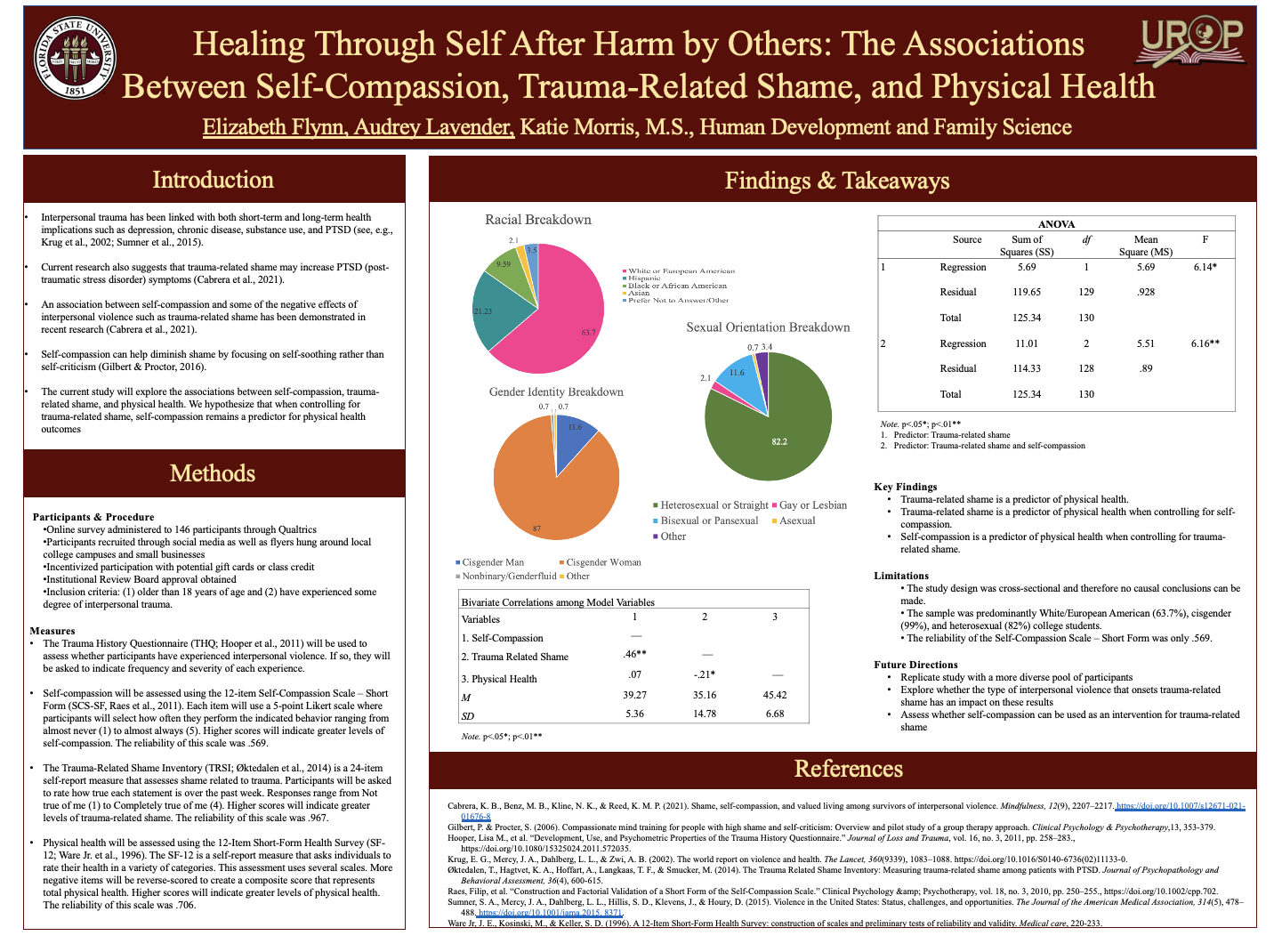Research Symposium
23rd annual Undergraduate Research Symposium, April 6, 2023
Elizabeth Flynn Poster Session 4: 4:00 pm - 5:00 pm/ Poster #378

BIO
I am a sophomore from Marietta, GA studying Psychology with a minor in Child Development. Academically, I am interested in neuroscience and clinical psychology. Currently, I am on the Pre-Physician Assistant track with hopes to attend PA school after graduation.
Healing Through Self After Harm by Others: The Associations Between Self-Compassion, Trauma-Related Shame, and Physical Health
Authors: Elizabeth Flynn, Katie MorrisStudent Major: Psychology
Mentor: Katie Morris
Mentor's Department: Human Development and Family Science Mentor's College: College of Health and Human Sciences Co-Presenters: Audrey Lavender
Abstract
In this study, researchers observed the impact of trauma-related symptoms on physical health and identified if increased levels of self-compassion are associated with increased physical health after experiencing interpersonal violence. Current studies suggest that self-compassion reduces interpersonal violence's adverse physical health effects, specifically trauma-related shame. This research team predicted that less trauma-related shame (reduced trauma-related symptoms) would negatively correlate with better physical health, and more self-compassion would positively correlate with better physical health. They also predicted that incorporating self-compassion into this model while controlling for trauma-related shame would yield significant results. An online survey via Qualtrics was given to 179 participants to test this. The survey assessed their levels of self-compassion, trauma-related shame, physical health, and experience of interpersonal violence. After data collection, researchers ran a hierarchical linear regression to determine if self-compassion held any predictive power for physical health while controlling for trauma-related shame. Researchers assessed trauma-related shame as a predictor for physical health first, and then added self-compassion in a second block. Correlations were evaluated to avoid multicollinearity. The results indicated that trauma-related shame predicted physical health, including when controlling for self-compassion, and self-compassion predicted physical health when controlling for trauma-related shame.
Keywords: Self-Compassion Trauma Physical Health


